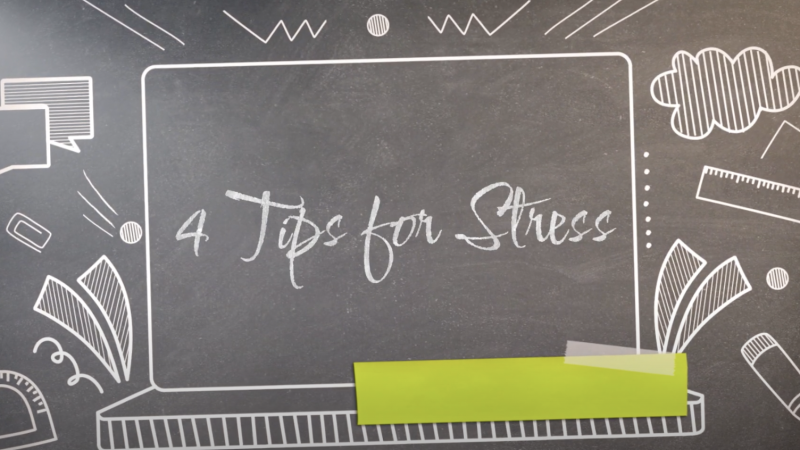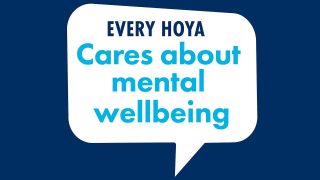Dr. Hoge recently completed a two-year, first-of-its-kind study that found that a mindfulness-based stress reduction program was as effective as a popular antidepressant drug, which can help doctors, insurers and health systems feel comfortable recommending and insuring this treatment, she says.
Dr. Hoge recommends discussing mindfulness meditation as a long-term practice to decrease stress and anxiety with your care provider. She also suggests four simple tips to navigate stress during the holidays and final exams.
1. Differentiate Between Worries and Thoughts You Can Act on.
Everyone worries, Dr. Hoge says, but sometimes these thoughts can feel overwhelming and make it hard to concentrate. One technique that can help is to differentiate between thoughts that are worries and thoughts you can make a decision or take action on.
“If a student is studying and worries about failing the exam, there is no action to take, because they’re already studying,” Dr. Hoge says. “So, let the worry go.”
On the other hand, if a student worries about being late to their final exam the next day, they can decide to leave earlier than originally planned for their exam.
2. Set Aside Time to Literally Worry.
If you’re feeling bombarded by worry, try setting aside time to address these thoughts, Dr. Hoge says. She recommends scheduling a specific block of time to deliberately worry – writing down these thoughts, for example, or saying them out loud. When the time is up, try to move forward with your day, knowing you’ll pay attention to them during your next block of time.
“It’s OK if worrying happens,” she says. “Our goal is to not let our worries consume too much time in our day.”
3. Take a Short Nap – It Just May Help You on Your Exam
Research shows how important sleep is to our health — and to our learning and memory consolidation. Sleep deprivation actually hurts memory, concentration, attention and other brain functions, Dr. Hoge says.
“Sometimes students think that they are going to stay up late and cram more information into their minds, but that will end up working against them,” she says. “An all-nighter is always a bad idea.”
Instead, Dr. Hoge recommends taking a nap if students feel tired while studying, which could help them retain the information they just learned. She notes two studies in which subjects learned a task and were later tested on it. Half of the group took a nap after learning the task — and those who did performed better on testing than those who did not nap.
4. Take Walking Breaks
Take a break from studying with exercise. Even small amounts count, Dr. Hoge says. Try taking a 10-minute walk outside or up a few flights of stairs. Cardiovascular exercise helps improve cognition and helps with neural growth, she says. “Plus it helps with alertness, at least momentarily.”
Dr. Hoge notes that these tips and techniques may not work for everyone. If students want additional help or someone to talk to, she recommends connecting with Georgetown’s Counseling and Psychiatric Service (CAPS) or HoyaWell, which offers virtual access to mental health support. Students can also access these Georgetown resources that support mental and emotional well-being, and, for meditation guidance and resources, Georgetown’s John Main Center.
If you are in crisis or know someone who is, call 911, go to your local emergency room or seek immediate help from a national hotline (988). Georgetown students can also call CAPS after hours at 202-687-6985 – a menu of options can direct to the emergency consultation line.
“Each person is different in how they cope and address stress – and in which tools work for them,” Dr. Hoge says. “Please remember you’re never alone in dealing with these thoughts, even if it feels like it. There is hope and help, and I hope these tricks and techniques offer students some help this holiday season.”




